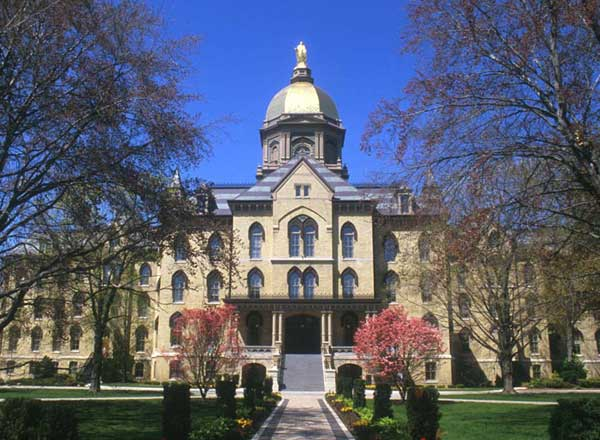
Data Science Education Evolves to Meet Surging Demand

Here’s some good news for young data science professionals looking for that first job: your skills are in high demand and will help you land a job with an average starting salary close to $120,000. But there’s also some bad news: the field is evolving so quickly that you will continually need to refresh your skills.
Welcome to the world of big data analytics, where the only constant seems to be constant change. You may not believe all the hype about big data, and that’s fine. But that really doesn’t matter when you consider how desperate companies in the real world are to find people with the right combination of data science skills to work magic upon the data.
The intense demand for data scientists and professionals with related skills (data analyst, data engineer, data whisperer, etc.) was first identified years ago. Gartner famously stated we’d be 100,000 data scientists shy of demand by 2020, while the storied management services firm McKinsey pegged the shortage at nearly twice that amount, with 60% of available data science jobs going unfilled.
Those numbers seem to be borne out by statistics from the job sites. A search for “data scientist” returns 29,500 hits on Glassdoor, which lists data scientist as the number one job in the country, with a base salary of nearly $117,000 (but curiously, only about 1,700 job openings for “data scientist”). Another job board at Indeed currently has about 21,000 openings for jobs involving data science. That gives you an idea of the huge demand for data science jobs around the country.
What’s more, the data science employment gap seems to be getting wider. “The supply and demand ratio will never catch up at this point, not in our lifetime,” says Jim Deters, the co-founder and CEO of Galvanize, a provider of bootcamp-style data science training courses that just graduated its 1,000th student last week. “I don’t see where supply ever catches demand anywhere in the near term.”
Galvanize was one of the first data science bootcamp programs to get started back in 2013, and currently it has nearly 100 faculty members at campuses across the country leading 12-week data science courses and six-month data engineering courses that students pay a five-figure fee to attend. Deters claims that Galvanize is the largest such program in the country, and he might be right. But regardless of that, the gap between the availability of data science skills and demand seems to be getting bigger, not smaller.
“In the grand scheme of things, it’s a tiny drop in the bucket,” Deters says of graduating his 1,000th student. “Companies are starving for more skills. They’re looking to attract and retain net new talent, and they’re looking to recruit from schools like Galvanize and other schools, but also retool their employees.”

Bootcamp-style data science programs are growing nationally (CA Eccles/Shutterstock)
Other bootcamps besides Galvanize are seeing success with their 12-week data science programs, including NYC Data Science Academy, which starts its next program on September 26. “You will develop expertise in R, Python, Hadoop and Spark in just 12 weeks, while enjoying our support as we help you lift your career,” the company says on its website. You can also get a fully-immersive data science bootcamp experience from places like Metis, Kaplan, RSquare Edge, General Assembly and BitBootcamp. (For a full list of bootcamps see “What’s Hot This Summer: Data Science Bootcamps.”)
While data science bootcamps are favored by those looking to add specific skills, such as learning Python or Spark–or by middle-aged professionals looking to change careers–younger students are increasingly getting exposed to data science at four-year colleges and universities.
According to Datascience.Community, there are more than 600 college-level data science programs in existence around the world offering certificates or bachelor’s, master’s, or doctorate degrees in data science, with the vast majority of them in the United States. Many of the programs don’t include “data science” specifically in the title, but use another names, like the Decision Analytics track of the Operations Management master’s degree offered by the University of Alabama, or the Hybrid MBA with Business Analytics and Technologies Concentration available at the University of California, Davis.
One of the latest universities working to develop a data science program is the Massachusetts Institute of Technology (MIT). According to MIT professor Devavrat Shah, MIT will be launching a pair of new programs this fall.
The first is an online bootcamp-style course taught by MIT professors and offering a certificate in data science, which will be offered through a new interdisciplinary center Shah spearheaded called the Statistics and Data Science Center.
The second new MIT program is a new undergraduate program in statistics and data science that students can take as their minor. Eventually, perhaps a few years from now, MIT will offer a full doctorate degree in data science.
“There are lots of masters level programs in data science, but we believe the right way to do this is to bring statistics and data science together, and offer the proper foundational graduate PhD program,” Professor Shah tells Datanami.

The University of Notre Dame last month unveiled a 21-month online master’s of data science program sponsored by AT&T that students can take online
Other colleges unveiling new data science programs this fall include Marquette University, University of Notre Dame, Johns Hopkins University, and Montana Tech.
“Data science is a complex and incredibly dynamic field,” Thomas A. Longstaff, co-chair of the data science program, says in a statement on the university magazine website for Johns Hopkins “The worldwide demand for deep technical expertise in data science has already begun to skyrocket.”
John Philosophos, a business development partner at Great Oaks Venture Capital, who lobbied Marquette to add data science curriculum, called the shortage an “acute national problem.” “With the proliferation of data sets from the explosion of the internet of things, demand for data scientists will grow exponentially,” the Milwaukee Journal Sentinal quotes him as saying.
As universities and bootcamp programs scale up to meet demand, one thing is becoming clear: the pace of change is likely to accelerate. That creates an opportunity for people with the right set of skills.
“This industry in general is moving so quickly,” Galvanize’s Deters says. “The tools are changing rapidly. We teach people to be auto-didactic. We each that you have to learn how to learn, you have to be constantly evolving and adapting and moving with adoption of skills and with the changes of tools and technology.”
Knowing your way around Hadoop was a hot skill five years ago, and now Spark is the next “big thing.” Many big enterprises are adopting distributed Kafka systems for managing streaming data, while a host of other development frameworks like Apache Flink and Apache Beam promise to uproot the big data applecart with even higher levels of real-time productivity.
But at the end of the day, without properly trained people to make the technology work, the technology is nothing but a bunch of bits and bytes.
“Everybody is a software company and everybody’s a data company. Whether they like it or not, that’s the reality,” Deters says. “The investments that people are making now are going to decide which companies are going to be the ones that thrive in the next five to 10 years. If you don’t have the human capital, you’re screwed. You’re throwing the keys to a Ferrari to a toddler. You’re not going anywhere.”
Related Items:
What’s Hot This Summer: Data Science Bootcamps
Tracking the Data Science Talent Gap



























